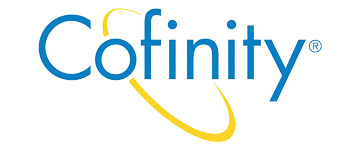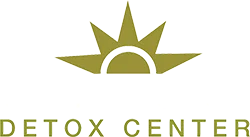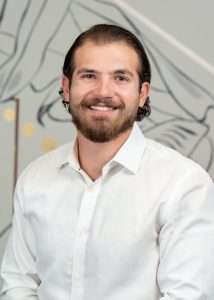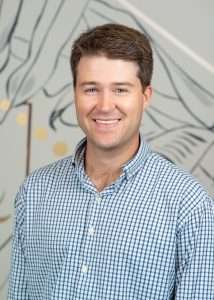Understanding the Importance of Drug Rehab Aftercare Programs
Drug and alcohol addiction treatment is a vital first step toward long-term recovery. However, completing an inpatient detox or rehabilitation program is just the beginning of a lifelong journey. Aftercare programs play a crucial role in maintaining sobriety and preventing relapse. At Chattanooga Detox Center, we are dedicated to guiding our clients through the aftercare planning process, ensuring they have the support and resources needed to continue their recovery successfully.
Why Is Drug Rehab Aftercare Important?
Aftercare is an essential component of recovering from addiction or any chronic illness. Similar to how a patient recovering from a severe asthma attack receives ongoing care instructions—such as medication management, lifestyle changes, and avoidance of triggers—individuals recovering from addiction need continuous support to maintain their sobriety.
Benefits of drug and alcohol rehab aftercare plans include:
- Relapse Prevention: Ongoing support helps identify and manage triggers that could lead to relapse.
- Managing Underlying Mental Health Symptoms: Continued therapy addresses co-occurring mental health disorders.
- Life Skills Development: Programs teach essential skills for daily living and coping strategies.
- Community Support: Fostering connections with others in recovery creates a supportive network.
During aftercare, individuals can apply the skills they’ve learned in treatment to real-world situations while still receiving guidance from professionals.
Alcohol and Drug Rehab Aftercare Program Options
There are various aftercare programs available to suit different needs and lifestyles. These programs range from structured outpatient treatments to community support groups and sober living arrangements.
1. Partial Hospitalization Program (PHP)
A Partial Hospitalization Program is one of the highest levels of outpatient care. Clients attend treatment sessions six days a week for several hours each day. PHPs are ideal for those who:
- Require intensive support but can maintain sobriety outside a residential facility.
- Benefit from a structured environment while gradually transitioning back to daily life.
- May choose to reside in a sober living facility while attending the program.
2. Intensive Outpatient Program (IOP)
An Intensive Outpatient Program offers flexibility for individuals balancing work, school, or family commitments. Typically involving 9 to 20 hours of programming each week, IOPs include:
- Individual Therapy: One-on-one sessions with a licensed counselor.
- Group Support Meetings: Facilitated discussions with peers in recovery.
- Life Skills Training: Workshops on managing stress, relationships, and responsibilities.
IOPs are suitable for those who need substantial support but require a schedule that accommodates their personal obligations.
3. Sober Living Homes
Sober living facilities provide a safe and supportive living environment for individuals who may not have a stable or trigger-free home to return to after rehab. Benefits include:
- Structured Living: Residents must adhere to house rules promoting sobriety.
- Community Support: Living with others in recovery fosters mutual encouragement.
- Continued Accountability: Regular check-ins and possible drug testing help maintain commitment to sobriety.
Many residents in sober living homes continue attending PHPs, IOPs, or other outpatient services.
Call (423) 455-9887
Insurance Can Cover Up To 100%
We Accept Most Insurance. Please Note We Are Not Affiliated or Endorsed By Insurance Companies.
What Happens If I Relapse in Aftercare?
Relapse is often a part of the recovery journey for many individuals dealing with chronic illnesses, including addiction. According to the National Institute on Drug Abuse (NIDA):
“Relapse rates for drug use are similar to rates for other chronic medical illnesses.”
Experiencing a relapse doesn’t mean failure; instead, it provides an opportunity to:
- Learn from the Experience: Understand what triggered the relapse to prevent future occurrences.
- Adjust Treatment Plans: Reassess and modify aftercare strategies to better suit current needs.
- Seek Additional Support: Consider stepping back into a higher level of care, such as returning to inpatient treatment or increasing therapy sessions.
At Chattanooga Detox Center, we support our clients through every phase of their recovery, including navigating setbacks.
How Long Does Aftercare Last?
The duration of aftercare programs varies based on individual needs and the specific type of program. Factors influencing the length of aftercare include:
- Type of Program: PHPs may last 4 to 6 weeks, while sober living arrangements can extend for several months.
- Personal Progress: Ongoing assessments help determine when an individual is ready to transition out of aftercare.
- Continuing Support Needs: Some may benefit from long-term outpatient therapy lasting months or even years.
Recovery from addiction is a lifelong process. Aftercare programs provide continuous support, helping individuals maintain sobriety and improve their quality of life.
Find Alcohol and Drug Rehab Aftercare Programs in Chattanooga, TN
Completing an inpatient detox or residential treatment program is a significant achievement, but continuing care is essential for lasting recovery. At Chattanooga Detox Center, we prioritize aftercare planning from the outset of treatment. Our team works closely with clients to:
- Develop Personalized Aftercare Plans: Tailored to individual goals and circumstances.
- Facilitate Smooth Transitions: Ensuring there are no gaps in care between treatment stages.
- Connect with Resources: Providing referrals to reputable providers and support networks.
Contact us today to learn more about our addiction treatment services and how we can support you or your loved one on the path to recovery.








 Gupta Brings Over A Decade Of Experience To Chattanooga Detox Center. Dr. Gupta Specializes In Treating Adults With Substance Use And Psychiatric Disorders. His Extensive Clinical Experience Includes Medication-Assisted Treatment, Medical-Surgical Consultation And Psychiatric Stabilization In Acute Settings. Dr. Gupta Completed His General Psychiatry Residency At The University Of Connecticut Followed By A Fellowship In Addiction Psychiatry At Emory University. He Is Double Board-Certified In Both Of These Specialties. Dr. Gupta Is Passionate About His Work In Substance Abuse And Is An Advocate For Reducing The Stigma Surrounding Mental Illness.
Gupta Brings Over A Decade Of Experience To Chattanooga Detox Center. Dr. Gupta Specializes In Treating Adults With Substance Use And Psychiatric Disorders. His Extensive Clinical Experience Includes Medication-Assisted Treatment, Medical-Surgical Consultation And Psychiatric Stabilization In Acute Settings. Dr. Gupta Completed His General Psychiatry Residency At The University Of Connecticut Followed By A Fellowship In Addiction Psychiatry At Emory University. He Is Double Board-Certified In Both Of These Specialties. Dr. Gupta Is Passionate About His Work In Substance Abuse And Is An Advocate For Reducing The Stigma Surrounding Mental Illness. President Alec Pagliarulo has spent his entire career working in the addiction and mental health community. He has worked in various roles, including benefits analyst, admissions coordinator, and business development specialist. Alec is passionate about providing the best possible care to individuals struggling to overcome addiction. He aims to create positive recovery experiences, including programs rooted in integrity that pave a path for long-term growth.
President Alec Pagliarulo has spent his entire career working in the addiction and mental health community. He has worked in various roles, including benefits analyst, admissions coordinator, and business development specialist. Alec is passionate about providing the best possible care to individuals struggling to overcome addiction. He aims to create positive recovery experiences, including programs rooted in integrity that pave a path for long-term growth. Carter is a successful real estate and private equity investor. Prior to founding Chattanooga Detox Center, Carter worked in insurance brokerage in New York City and as a real estate private equity acquisitions specialist in Atlanta. He completed his undergraduate degree at Washington & Lee University and has an MBA from the UNC Keenan-Flagler Business School.
Carter is a successful real estate and private equity investor. Prior to founding Chattanooga Detox Center, Carter worked in insurance brokerage in New York City and as a real estate private equity acquisitions specialist in Atlanta. He completed his undergraduate degree at Washington & Lee University and has an MBA from the UNC Keenan-Flagler Business School.